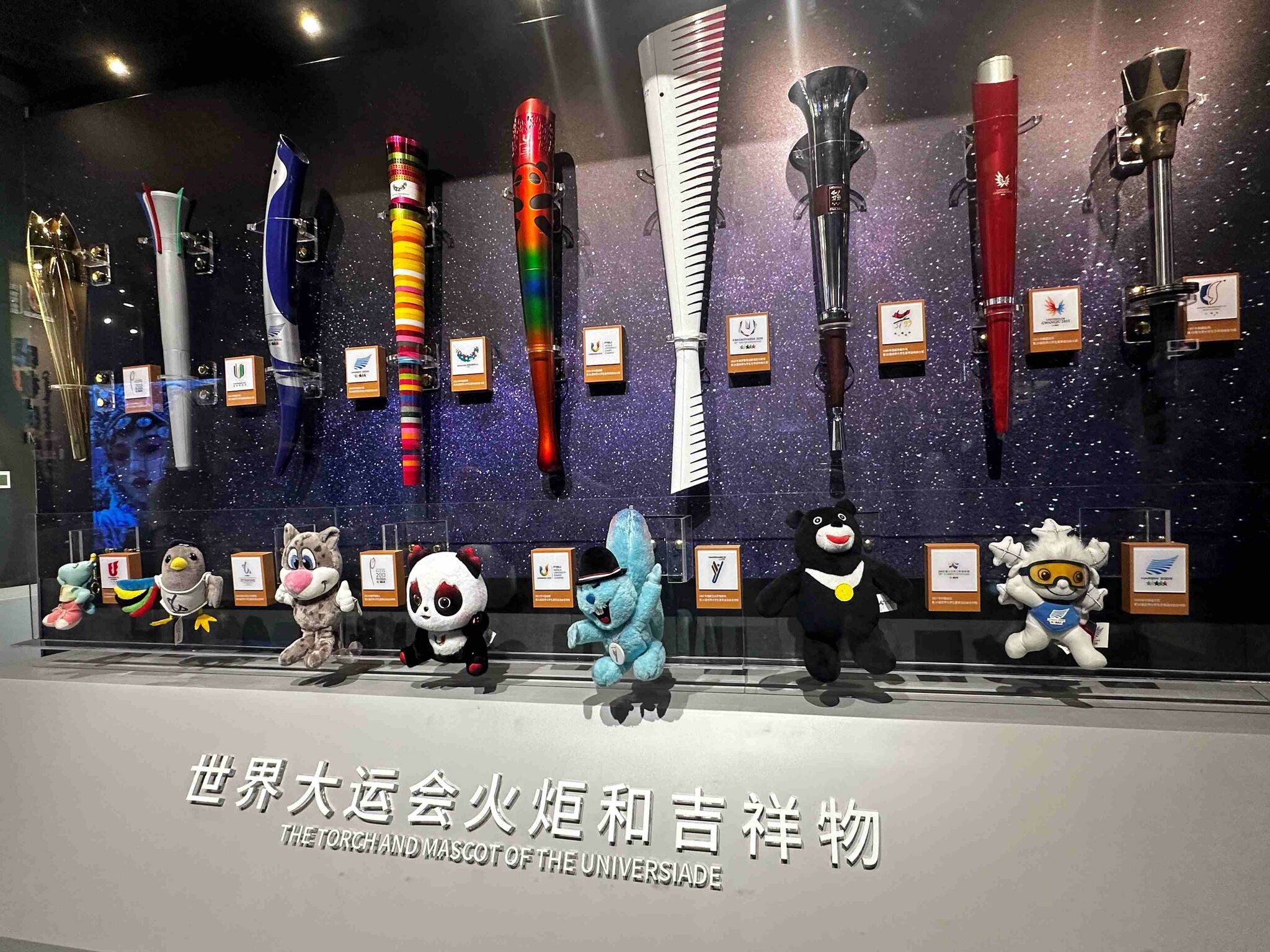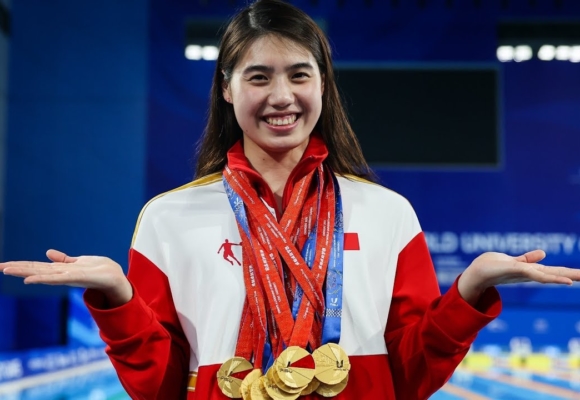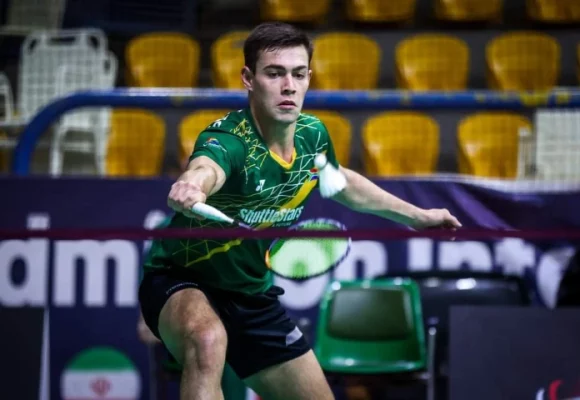“This museum is a showcase of the values of university sport,” said Lidia Lesnykh, FISU Head of Archive Research and Studies about the Chengdu FISU World University Games Museum.
“It proves that every single moment, person, and artifact is a part of history, and we have to carefully preserve the heritage of our federation for the future.”
At the museum. located inside the Dong’an Lake Sports Park Stadium, visitors can learn more about the history of the International University Sports Federation and Chengdu as host city of the 31st FISU Summer Games.
In addition to FISU and its Summer Games, the exhibit highlights, among others, China’s history of hosting the biennial multisport event, legendary athletes, and Chengdu’s journey from bid to host city.
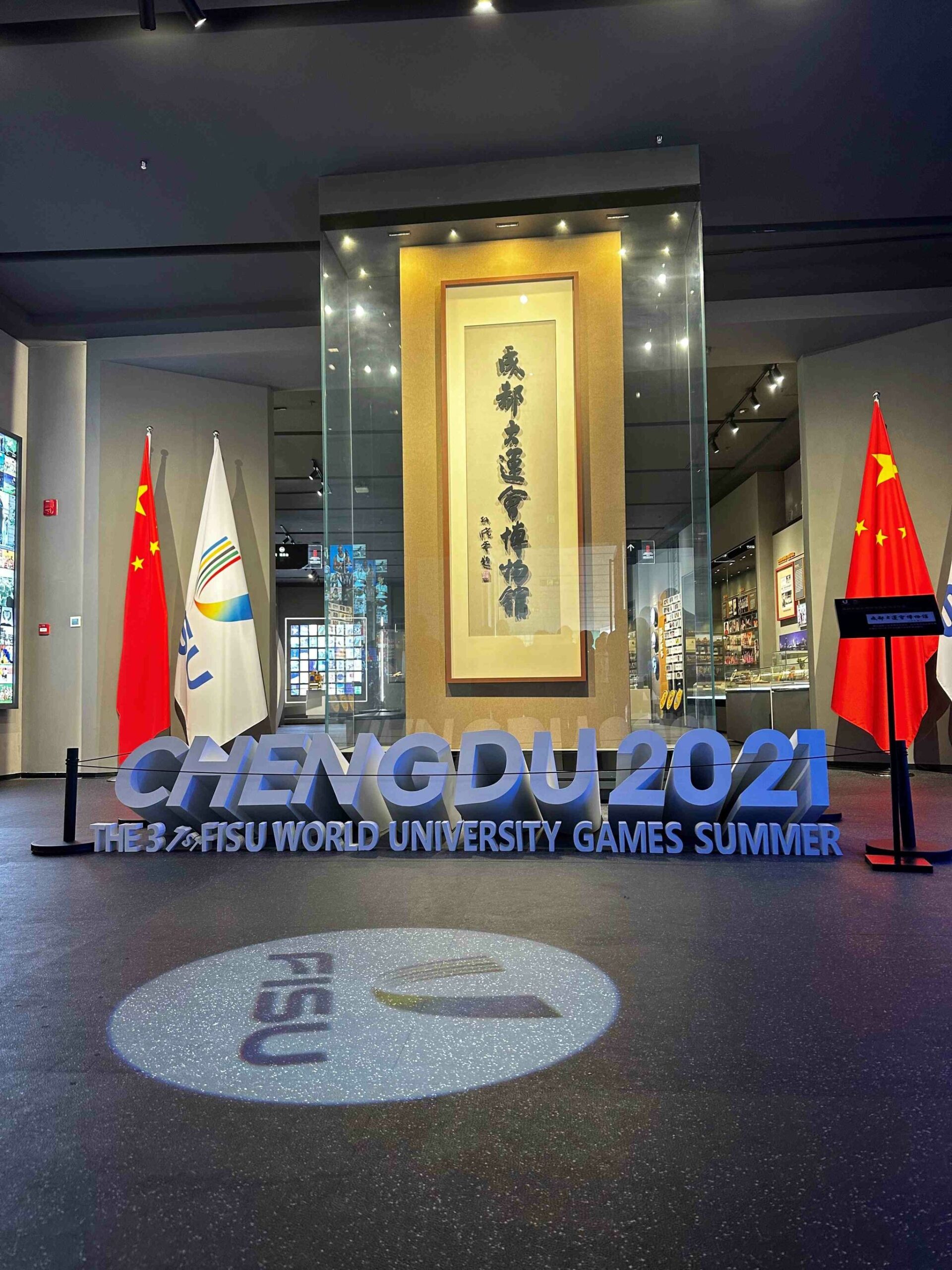
FISU Acting President Leonz Eder spoke about the value of the archives at the inauguration on July 24.
“This shows invaluable treasures from previous FISU World University Games… it’s really unique. It’s fantastic.”
Since the first Summer Universiade (as it was known then) was held in Turin, Italy in 1959, the event has gone through an extraordinary process over more than 60 years. In the past six decades, its scale and influence have expanded.
The museum displays objects from different editions of the FISU Summer Games, bringing history to life.
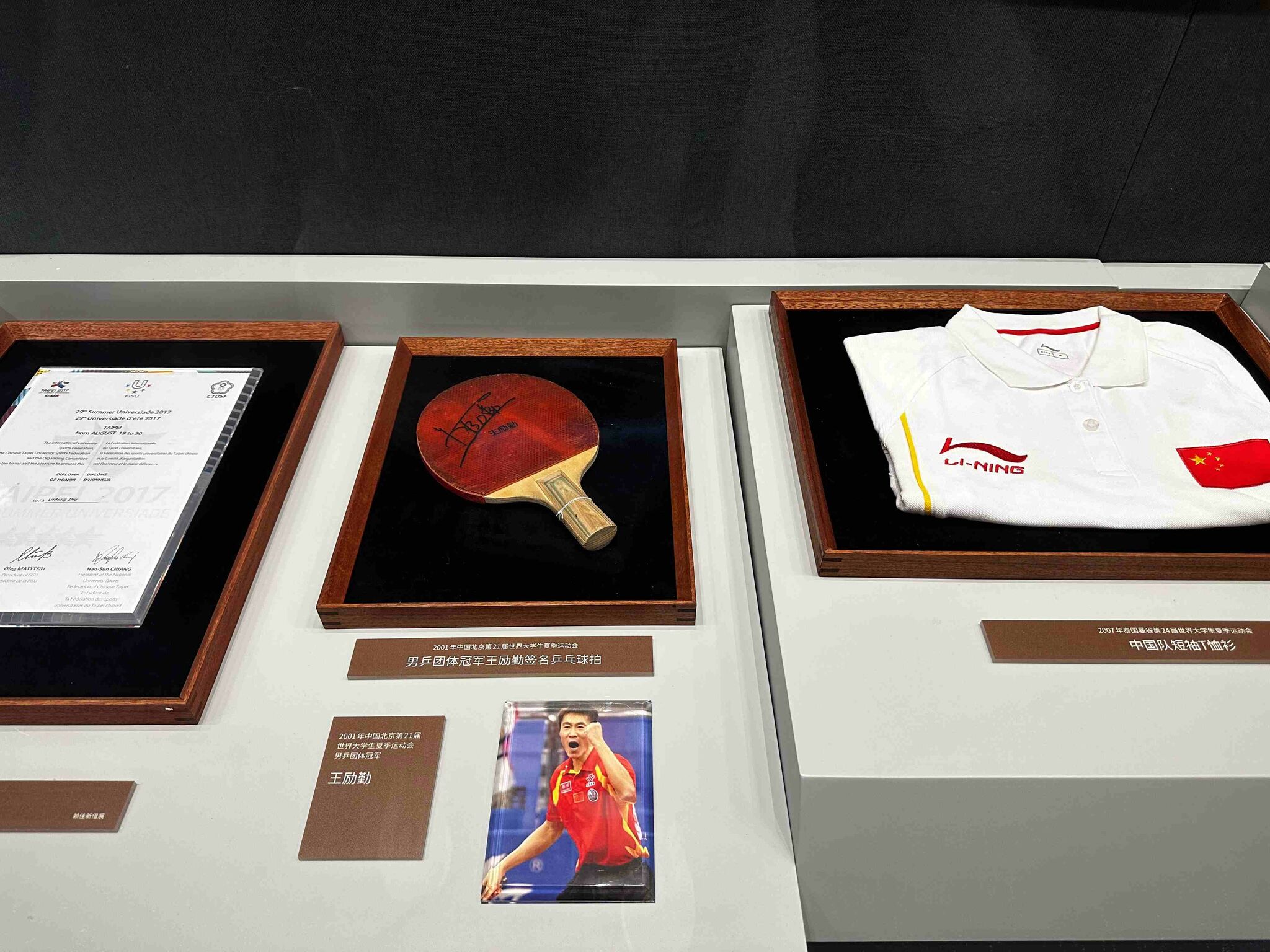
Visitors can see the torches and mascots from previous Games, such as the squirrel Zagi from Zagreb in 1987.
The panda mascot Rongbao, which translates to ‘Chengdu Treasure’, and the torch Ronghuo, which means ‘Chengdu Torch’, are also on display.
“We will continue to bring additional souvenirs. You’ve created something very special for university sport in the world,” said Eric Saintrond, FISU Secretary General and CEO.
The innumerable images, artifacts, and galleries inevitably bring back memories, giving people the chance to relive the emotions of past Games.
“This is nearly 40 years of my life,” said Saintrond, who has been with FISU since 1985 and has held his current position since 2007.
The exhibition also focuses on the historic opportunity for Chengdu to bid and later become the host city of the world’s highest level, largest sporting event for university students.
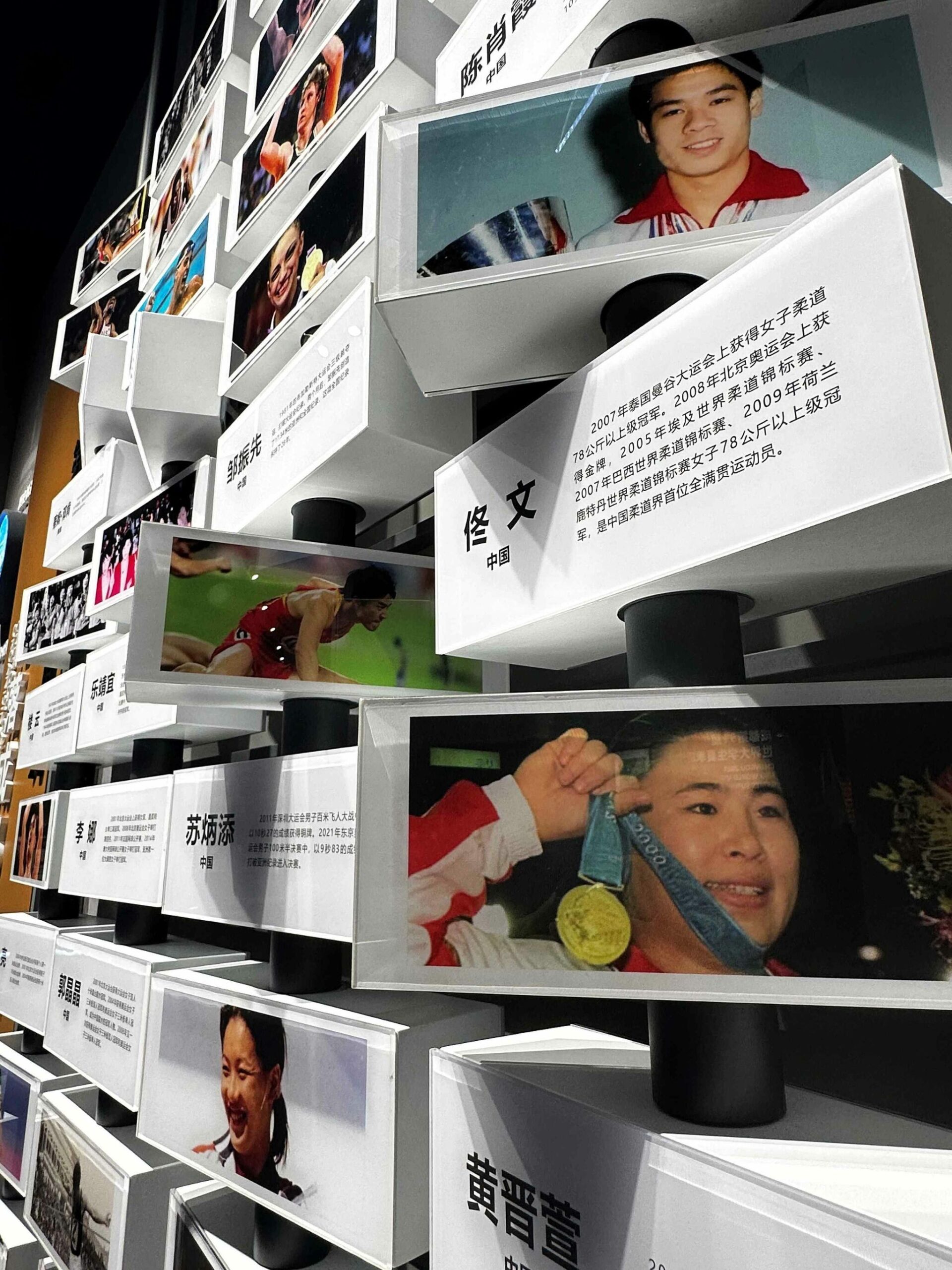
In October 2018, Chengdu officially applied on behalf of China to host the 31st edition of the FISU Summer Games.
Five months later, FISU, Chengdu, and FUSC (China’s university sport federation) signed the hosting contract, which meant that the capital of Sichuan province had won the right to host the major event.
This bidding process was made more feasible by letters of commitment from Gou Zhongwen, who served as Director of the State General Administration of Sport, and Chen Baosheng, who served as China’s Minister of Education.
Another focus of the museum is on legendary athletes who have competed throughout the years.
A table tennis racket from Beijing 2001 signed by two-time Olympic champion and four-time Olympic medallist Wang Liqin is one of the many items that highlight the legacy of high-profile student-athletes at the Games.
The legacy of FISU and its impact on university sports is unparalleled. In Chengdu, history has been brought to life. Chengdu really does make dreams come true.
Written by Andjela Cegar, FISU Young Reporter

